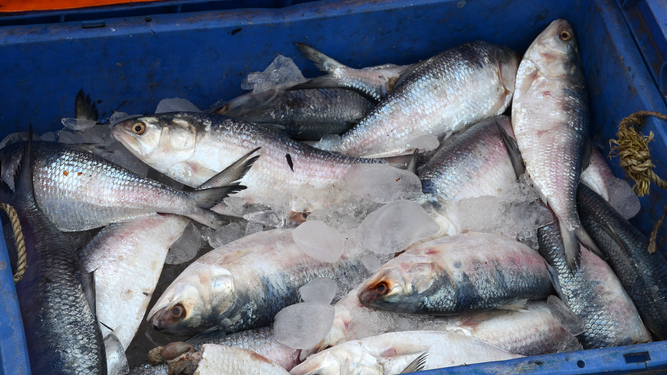The Vegan Stance On Halal Meat: Addressing Ethical Dilemmas

Table of Contents
Understanding Halal Meat Production
Halal meat production adheres to Islamic dietary laws, emphasizing the humane treatment of animals before slaughter. The process typically involves specific prayers and incantations, aiming to minimize animal suffering. However, the specifics of halal slaughter can vary significantly depending on regional interpretations and the level of oversight. While the ideal aims for a swift and painless death, inconsistencies in practice can lead to concerns about animal welfare.
- Key elements of halal certification: Halal certification bodies ensure that animals are slaughtered according to prescribed religious guidelines, often including specific knife types and methods of stunning (though stunning is not always required).
- Potential areas of concern regarding animal welfare in halal slaughter: These concerns often center around the consistency of application of halal methods, the potential for prolonged suffering if procedures are not meticulously followed, and the lack of standardized oversight across different regions.
- Comparison with non-halal meat production methods: While halal slaughter aims for a certain level of humane treatment, it still involves the killing of animals, a practice fundamentally opposed by vegan ethics. Comparing halal methods to other meat production methods reveals that the core ethical issue for vegans remains the consumption of animal flesh itself.
The Vegan Perspective on Animal Welfare
Veganism is a philosophy and lifestyle that seeks to exclude—as far as is possible and practicable—all forms of exploitation of, and cruelty to, animals. At its core, vegan ethics rejects the commodification and killing of animals for human consumption. This rejection extends to all methods of meat production, including halal slaughter.
- Vegan arguments against any form of animal slaughter: Vegans argue that the inherent value of animal life should prevent their use for human consumption, regardless of the method of slaughter. The act of killing is seen as a violation of animal rights.
- The inherent suffering involved in raising animals for meat: Even within halal practices, animals still endure the confinement, unnatural living conditions, and potential stress associated with factory farming. This inherent suffering is a primary concern for vegans.
- Alternatives to meat consumption for ethical and environmental reasons: Vegans advocate for plant-based diets as a sustainable and ethical alternative, emphasizing the environmental impact of animal agriculture and the availability of nutritious plant-based options.
Reconciling Veganism and Halal Practices
Bridging the gap between veganism and halal practices presents a significant challenge, requiring open dialogue and mutual understanding. While the core tenets of veganism and the requirements of halal meat seem irreconcilable, areas of common ground exist.
- Areas where vegans and halal practitioners might find common ground (e.g., environmental sustainability): Both groups share a concern for environmental sustainability. Reducing meat consumption, regardless of whether it's halal or not, can contribute to lessening the environmental impact of animal agriculture.
- Challenges in bridging the gap between these perspectives: The fundamental difference lies in the acceptance of animal slaughter. For vegans, this is unacceptable; for halal practitioners, it is religiously mandated under specific conditions.
- The role of education and open dialogue in promoting understanding: Open conversations that respectfully acknowledge both perspectives are crucial in fostering a better understanding and potentially identifying areas for compromise, such as focusing on improving animal welfare standards within halal practices.
Exploring Alternatives: Vegan Halal Options?
The increasing popularity of veganism has spurred innovation in plant-based food production. Many vegan alternatives to meat are now readily available, raising the question of their compatibility with halal principles.
- Examples of vegan halal-friendly foods: Many plant-based products naturally align with halal guidelines, such as fruits, vegetables, legumes, and grains. Processed vegan products may require halal certification depending on their ingredients and production methods.
- Considerations for halal certification of plant-based products: Certification bodies are increasingly assessing plant-based products for halal compliance, focusing on ingredients and manufacturing processes to ensure the absence of prohibited substances.
- Potential for innovation in developing more halal-compliant vegan options: The demand for ethical and sustainable food choices is driving the development of innovative plant-based products designed to meet both vegan and halal requirements, expanding the possibilities for everyone.
Conclusion: Finding Common Ground on the Vegan Stance on Halal Meat
The vegan stance on halal meat highlights the ethical complexities surrounding food choices. While the fundamental difference between vegan ethics and halal dietary laws remains, potential exists for finding common ground on issues such as animal welfare and environmental sustainability. By promoting open dialogue, improving animal welfare standards within halal practices, and expanding the availability of delicious and readily accessible vegan halal options, we can contribute to a more ethical and sustainable food system. Continue exploring the ethical considerations of your food choices, whether vegan, halal, or otherwise, prompting further research and discussion on the subject of the vegan stance on halal meat and similar ethical dilemmas. Let's work towards a future where responsible consumption and compassionate living are at the forefront of our food choices.

Featured Posts
-
 Untreated Autism And Adhd In Britain Could This Affect You
May 13, 2025
Untreated Autism And Adhd In Britain Could This Affect You
May 13, 2025 -
 Gibraltar And Brexit Unfinished Business And Stalled Talks
May 13, 2025
Gibraltar And Brexit Unfinished Business And Stalled Talks
May 13, 2025 -
 Tory Lanezs Alone At Prom Deciphering The Meaning Behind Peterson
May 13, 2025
Tory Lanezs Alone At Prom Deciphering The Meaning Behind Peterson
May 13, 2025 -
 Blow Your Mind Beyond Belief Incredible Things You Have To See
May 13, 2025
Blow Your Mind Beyond Belief Incredible Things You Have To See
May 13, 2025 -
 Kanika House The Delhi Bungalow Where Br Ambedkar Drafted The Indian Constitution
May 13, 2025
Kanika House The Delhi Bungalow Where Br Ambedkar Drafted The Indian Constitution
May 13, 2025
